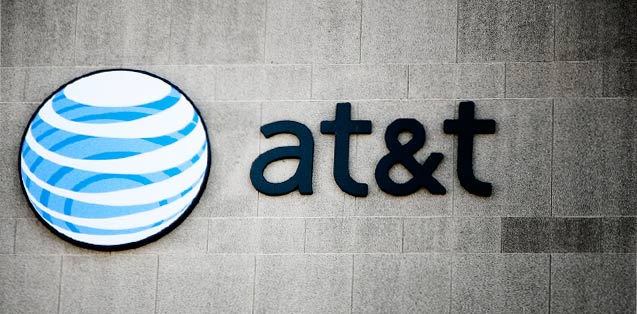
Support justice-driven, accurate and transparent news — make a quick donation to Truthout today!
NPR and everyone else, please stop lying to us. And please stop reading corporate press releases to us and calling them news.
This morning, NPR took a stab at covering the proposed AT&T-DirecTV merger that was officially announced this weekend.
You can listen here at NPR’s website.
NPR is completely wrong. This has nothing to do with AT&T or DirecTV “surviving.”
They’re both big, profitable companies, and if the industry is changing they can change to adapt to it. Which by the way, both are already doing.
What this is REALLY about is monopoly.
Just like the Comcast-Time Warner merger, and Sprint’s plans to try to take over T-Mobil, this AT&T-DirecTV move is all about MONOPOLY.
These mergers and acquisitions are about corporations getting so large that they dominate an industry, and limit your choices to a very, very small number of companies – which then all suddenly start raising prices and increasing profits.
This is about screwing the consumer.
And this is all because in 1982 Ronald Reagan stopped enforcing the Sherman Anti-Trust Act.
It’s amazing how much things have changed since then.
Back in the 1970s, Richard Nixon saw that AT&T’s monopoly on telephone service was stifling innovation and jacking up prices to consumers.
He initiated a breakup of AT&T that ended during the Carter Administration, breaking AT&T into 7 regional carriers, known as the “Baby Bells,” and spinning off their R&D arm as Lucent Technologies.
But then came Reagan and the “Baby Bells” began to re-consolidate. And so did everybody else in the industry.
Now, we’re all paying twice, three times, sometimes ten times what people in countries that enforce anti-trust laws like France and Germany pay.
If the media had any interest in telling the true story, they’d say, “AT&T is trying to further cement their control over the choices you have for telephone and internet service, and grab a part of your choices about TV, by buying DirecTV. If they’re successful, expect your prices to go up while your choices go down, just as has happened pretty much every other time an industry has succumbed to this sort of monopolistic behavior.”
But they won’t tell you that, because they’re nearly monopolies themselves.
NPR has a lock on – and government subsidy for – radio stations all across the nation.
And the big TV networks and the big cable companies won’t tell you what’s really up with AT&T becoming more and more of a monopoly because they’re all playing the same game themselves.
But it’s not just telecom and media companies that are growing into virtual monopolies.
Right now, there are 10 giant corporations that control, either directly or indirectly, virtually every consumer product we buy.
Kraft, Coca-Cola, PepsiCo, Nestle, Proctor and Gamble, General Mills, Kellogg’s, Mars, Unilever, and Johnson and Johnson together have a stranglehold on the American consumer.
Meanwhile, in the retail industry, Wal-Mart and Target, along with big box stores The Home Depot and Best Buy, control major portions of America’s retail industry.
You can basically pick any industry in America, and see the monopolistic characteristics in it.
That’s why we should pass a law – a new version of the Sherman Act – that says, explicitly, that whenever a company reaches a point where they have more than a certain percentage of a marketplace – say, 10 or 15 percent – then they can’t grow any larger in that domain.
They have to leave room for startups, innovators, and competitors.
There was a time in America when nearly every business in every Main Street or strip mall was locally owned by local families.
They paid well, they took care of their employees, and they had great customer service. The anti-trust laws kept the big boys at bay for over a century.
There was even a TV show that ran from 1960 until 1964 titled Route 66, in which Martin Milner and George Maharis visited town after town on their way from coast to coast.
Every town was different, every restaurant and hotel unique, and those differences from place to place provided an unending series of interesting plots for the TV series.
America worked back then because we enforced the anti-trust laws.
It’s time to start again, and even expand them and add some teeth to them. No more “too big to fail” banks or anything else.
Let’s get back to core American values and rebuild the nation’s small business sector.
Only then will we see innovation and competition return to America.
Matching Opportunity Extended: Please support Truthout today!
Our end-of-year fundraiser is over, but our donation matching opportunity has been extended! All donations to Truthout will be matched dollar for dollar for a limited time.
Your one-time gift today will be matched immediately. Your monthly donation will be matched for the whole first year, doubling your impact.
This matching gift comes at a critical time. As Trump attempts to silence dissenting voices and oppositional nonprofits, reader support is our best defense against the right-wing agenda.
Help Truthout confront Trump’s fascism in 2026, and have your donation matched now!